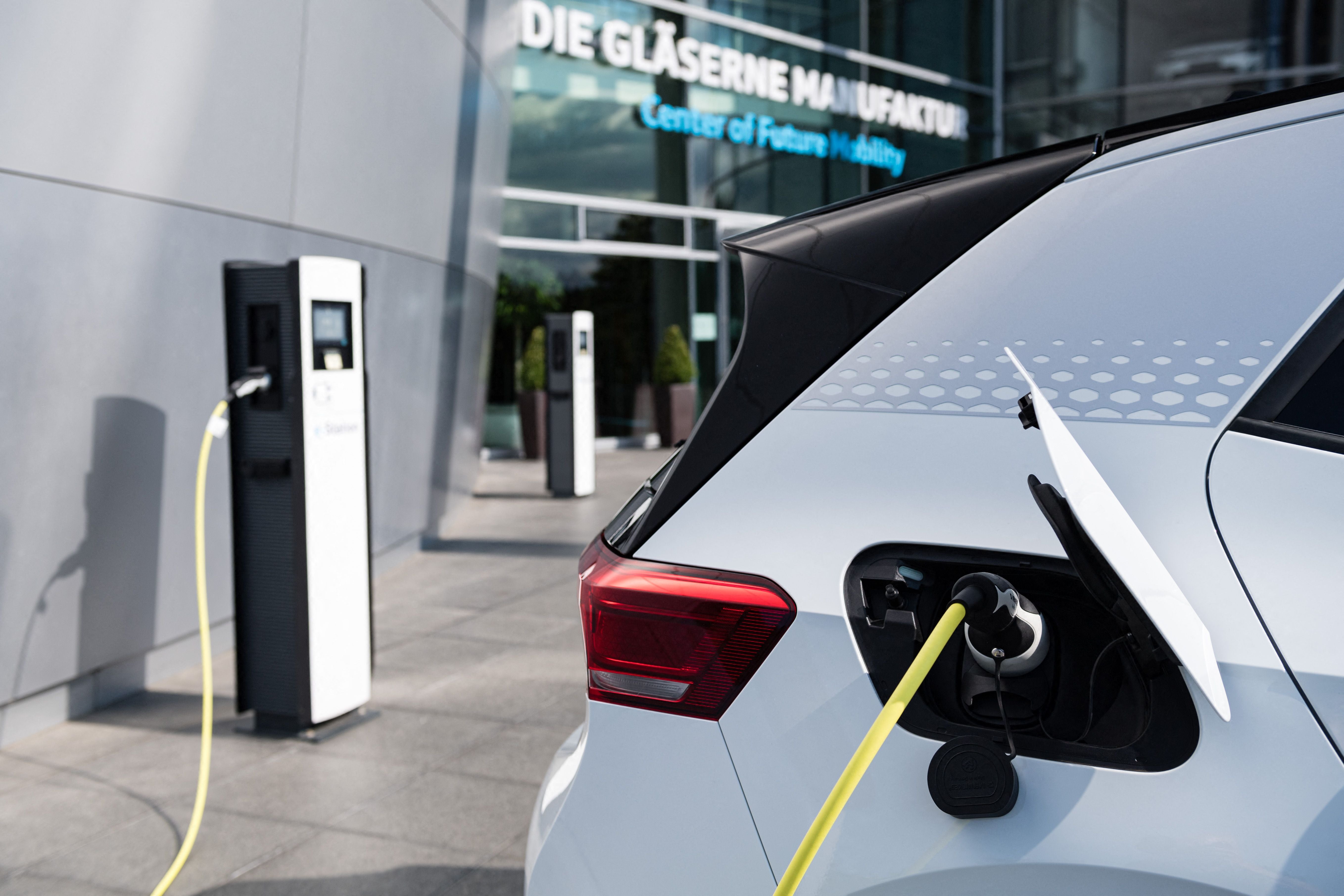Is the government doing enough to incentivise households to go green?
Ben Chu asks whether recent ministerial decisions, such as cutting grants for electric car purchases, mean they are now undermining their stated goal of encouraging us to make more environmentally-friendy choices


The government’s decision on Thursday to reduce the electric car grant available to households by £500 and restrict it to vehicles on sale for under £35,000 has provoked dismay from the automotive industry – but it has also raised concern about how serious ministers are about creating incentives for households to opt for low or zero carbon technologies.
The car grant reduction comes in a context of apparent retreat from various other programmes also designed to encourage pro-environment decisions.
The £2bn Green Homes Grant – vouchers of up to £5,000 for homeowners to improve the energy efficiency of their homes – was introduced last summer, with the chancellor Rishi Sunak boasting it would help make over 650,000 homes more energy efficient.
Yet the scheme is now being wound down, having only distributed a small proportion of the funds available.
And in 2019 another scheme, the feed-in-tariff, which made cash payments to households that produced their own electricity using renewable technologies, such as solar panels or wind turbines, was also closed to new applicants.
Read more:
It’s also important to note that Rishi Sunak kept fuel duty frozen again in this month’s Budget.
So is the government doing enough to encourage households to opt for low or zero carbon technologies? Or is it now, despite the talk from ministers of a “green industrial revolution” actually undermining that stated goal?
The government’s rationale for the changes in the electric car grant is that it doesn’t want to subsidise the well-off to buy expensive electric vehicles like Teslas and this change will allow the pot of grant funding to go further.
They also suggest that the automotive market is changing, with their ban on petrol and diesel cars from 2030 helping to bring down the price of electric vehicles, making a lower subsidy cap appropriate.
Yet analysts are sceptical over whether the electric car market is changing as rapidly this decision implies, with electric vehicles still at a considerable premium over petrol and diesel vehicles.
A similar rationale of removing subsidies from the better-off (which were growing due to falls in the price of solar panels) was used to justify the end of the feed-in-tariff.
But Jonathan Marshall, the head of analysis at the Energy & Climate Intelligence Unit (ECIU), says that this approach could well be counterproductive given the way new technologies tend to be rolled out.
“Most of these technology-based solutions are going to be made by first movers, not low- and middle-income households,” he says.
“Withdrawing that as the route to making things happens just means it’s less likely to spread beyond.”
The disappointing results from the Green Homes Grant are not due to a lack of demand (data released on Thursday showed 123,537 voucher applications, more than four times the number issued) but insufficient capacity in the building industry to do the renovation work. Many applicants have been unable to find an approved contractor in their area.
Ministers have justified winding it down on the grounds that it was only ever intended to be a short-term job-creating boost to the economy.
Yet for analysts this short-termism is the very problem.
“There is no reason to think that the benefits to employment will not still be feasible or welcome in the months after March 2021,” says Colm Britchfield of the Institute for Government.
He adds: “Serial short-term policy measures cannot be a substitute for serious planning.”
When it comes to decarbonising our homes – one of the biggest sectoral sources of national carbon emissions – the key is to start building up industrial and skills capacity for a decades-long haul.
We will need to instal hundreds of thousands of electric heat pumps a year and roll out a nationwide home insulation drive, as the government’s independent Climate Change Committee has stressed. This will not be a quick fix.
The word in Whitehall is that the Treasury is driving these recent changes to household incentive schemes, looking to save money. The Treasury’s interim Net Zero Review raised hopes among some of a more long-term, less cheese-paring approach from the finance ministry. But recent decision suggests the old mentality still persists.
Jonathan Marshall of the ECIU says if grants are considered to be excessively generous in some respects they should be gradually tapered away rather than immediately axed. They key, he says, is a fixed policy strategy and clear messaging to the public.
“These changes are announced seemingly at random – the chopping and changing means you risk damaging consumer confidence,” he says.
“When [these schemes] are brought in they sound really good [but] when you try and access them and it’s difficult, or they’re changed, or withdrawn, it just undermines the whole thing.”
Join our commenting forum
Join thought-provoking conversations, follow other Independent readers and see their replies
Comments
Bookmark popover
Removed from bookmarks